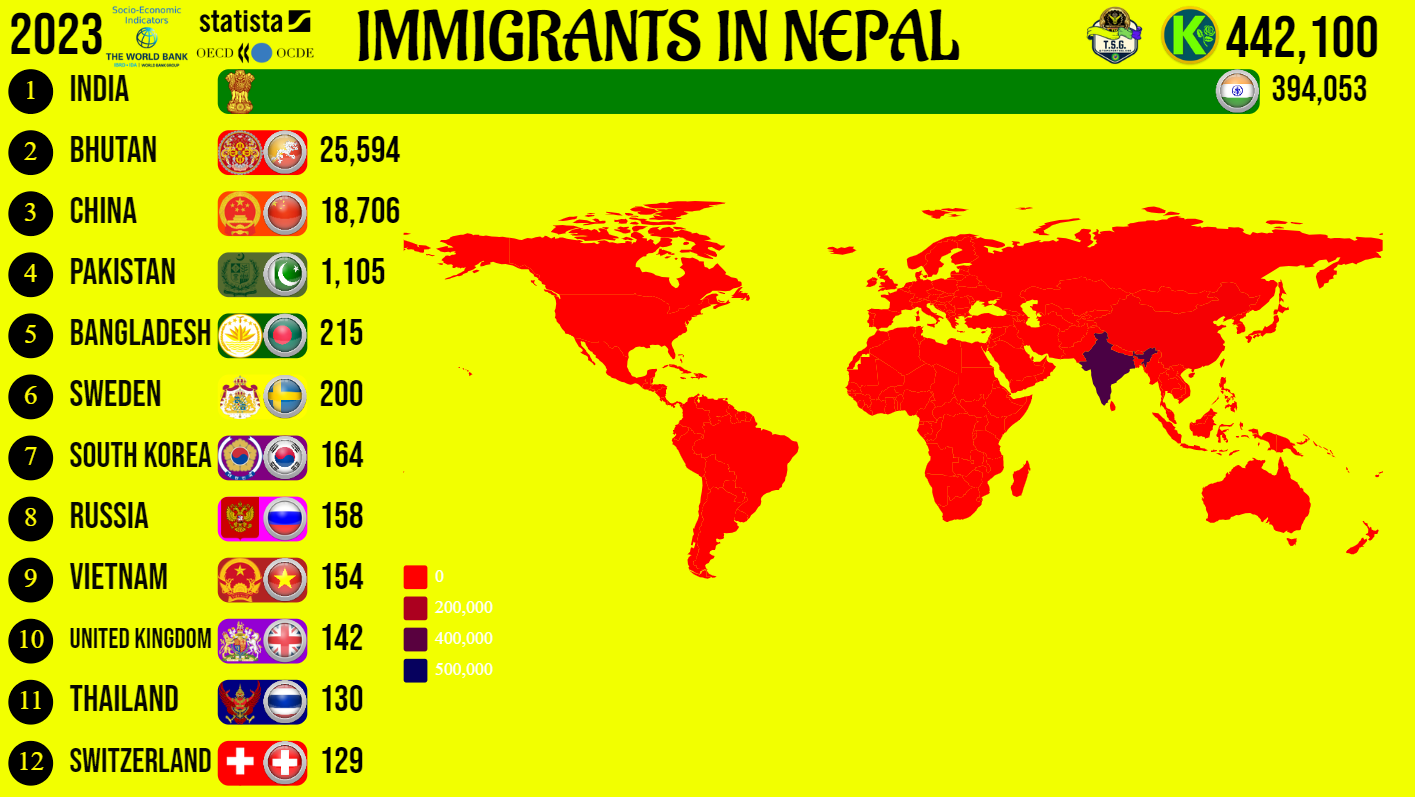Immigrants in Nepal
Nepal is a landlocked country in South Asia, situated between China and India. While Nepal is known for its diverse ethnic groups and cultures, the country does not have a significant history of immigration compared to some other nations. However, in recent years, Nepal has witnessed an increase in the number of immigrants and foreign workers coming to the country. Here are some key points about immigrants in Nepal:
1 - Bhutanese Refugees: One of the notable immigration movements in Nepal involved Bhutanese refugees. In the late 1980s and early 1990s, a significant number of Bhutanese citizens, mainly of Nepali ethnicity, were expelled from Bhutan. They sought refuge in Nepal, and several refugee camps were set up in the eastern part of the country. Over time, efforts were made to resettle these refugees, and many have been relocated to third countries such as the United States.
2 - Labor Migration: Nepal is known for its labor migration, with a considerable number of Nepali citizens seeking employment opportunities abroad. It is estimated that over 3.5 million Nepali citizens are working in various countries, primarily in the Middle East, Malaysia, and Gulf countries. These individuals contribute significantly to Nepal's economy through remittances sent back home.
3 - Indian Immigrants: Due to the open border between Nepal and India, movement between the two countries is relatively fluid. Many Indian citizens reside in Nepal, primarily in the Terai region, which shares a border with India. These individuals often engage in trade, business, or work in Nepal.
4 - Tibetan Refugees: Nepal has been a transit point for Tibetans fleeing their homeland and seeking refuge in India or other countries. In the past, Nepal served as a critical pathway for Tibetans escaping Chinese rule. However, in recent years, the Nepalese government has tightened restrictions on Tibetan refugees, making it more challenging for them to pass through Nepal.
5 - Expatriate Community: Nepal also hosts a small but diverse expatriate community comprising individuals from various countries. These individuals often work in diplomatic missions, non-governmental organizations (NGOs), international businesses, and development projects in Nepal.
It is important to note that Nepal's immigration policies and regulations can vary, and the country has faced challenges in managing immigration and refugee situations due to its geopolitical position and limited resources.

